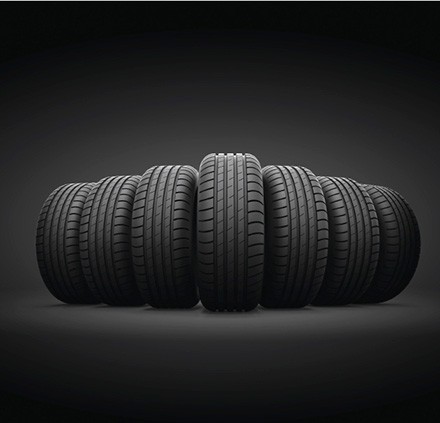How was the Indian tyre market been performing recently?
As one can safely assume, the growth or decline of the tyre industry is closely connected to the growth and decline of the automotive industry which as the GDP of India grows, also grows, so too do two other factors; namely the push on infrastructure development within the country and the radicalisation in commercial segment.
As the GDP increases across India, and investment into roads, developments and settlements increases, so too the transportation industry grows. The more roads there are to drive on, the greater the need there is for vehicles and therefore the greater need for tyres.
How big a hit did the market take from low-cost Chinese imports? What sort of steps did local suppliers take in response?
As lower-cost imports came in from China, we Indian manufacturers lose on 30% of the market share of truck-bus radials to China. This had a knock-on effect to the whole truck-bus industry across India including the truck-bus segment of Apollo. At its peak, China exported more than 150,000 tyres every month into India. Whereas some home-grown tyre manufacturers tried to compete with cheaper tyres, many failed. As you can imagine, this proved to be a concern, not just for Apollo but for the industry in India as a whole. The Automotive Tyre Manufacturers’ Association (ATMA) raised this is an issue with the relevant governmental bodies.
 What effect have you seen from the anti-dumping duties imposed in 2017?
What effect have you seen from the anti-dumping duties imposed in 2017?
The Anti-Dumping duties imposed in 2017 together with the demonetisation and Goods & Services Tax (GST) was effective in lowering Chinese imports by a third. This meant that India became reliant on somewhere between 50,000-60,000 tyres per month, rather than150,000 tyres per month from China.
More recently, has the industry seen any benefit from the Goods and Services Tax (GST) Implementation?
GST was effective in lowering impositions on borders which allowed vehicles to cover longer distances at a greater speed per day, facilitating faster movements of goods across the country. The increase in movement across the country inspired a greater demand for vehicles to transport goods and in turn, a greater demand for tyres, which has boosted the tyre industry significantly.
What is the situation with the prices of raw materials at the moment?
At Apollo, we are heavily reliant on the access and cost of raw materials, namely, crude-based materials, rubber and carbon black. Since January 2018, rubber prices have stabilised, whereas due to the higher cost of crude, any materials made from crude have become more expensive. There has recently been a shortage of carbon black, which has affected the methods and costs of manufacturing at Apollo significantly.
What is your forecast for the industry this year?
It is always difficult to predict an accurate forecast, but taking in light of the higher price for crude at the moment, although it’s likely that Apollo will see a growth, the profit margins are likely to suffer until we are able to operate a system and method taking into consideration the current price of crude.
About Apollo Tyres:
Apollo is the 14th largest tyre manufacturer in the world, with annual consolidated revenues of US$2.09-billion and with 16,000 employees. From its major manufacturing operations in its base of India, as well as the Netherlands and Hungary, Apollo exports to more than 100 countries.
About Neeraj Kanwar:

Vice Chairman & Managing Director of Apollo Tyres Ltd
Neeraj Kanwar is the Vice Chairman & Managing Director of Apollo Tyres Ltd. He has been instrumental in Apollo’s growth, taking the company from US$450 million to US$2 billion within five years. Under his leadership, Apollo acquired Dunlop Tyres International in South Africa in 2006, and Vredestein Banden B V in the Netherlands in 2009. He began his career with Apollo Tyres as a Manager in Product & Strategic Planning, where he played a crucial role in creating a bridge between the two key functions of manufacturing and marketing. In 1998, he joined the Board of Directors and was promoted to Chief of Manufacturing and Strategic Planning. His people management skills helped him bring overarching changes in industrial relations, the development of technology and benchmarking on product and efficiency parameters. In 2002, Neeraj took over as the Chief Operating Officer. He was appointed Joint Managing Director in 2006 and elevated to Vice Chairman in 2008, and soon after to Managing Director in 2009, for his initiatives in establishing the company in the global arena. As a business leader, Neeraj is associated with leading industry associations and was recently the Chairman of the Automotive Tyre Manufacturer’s Association, India.

